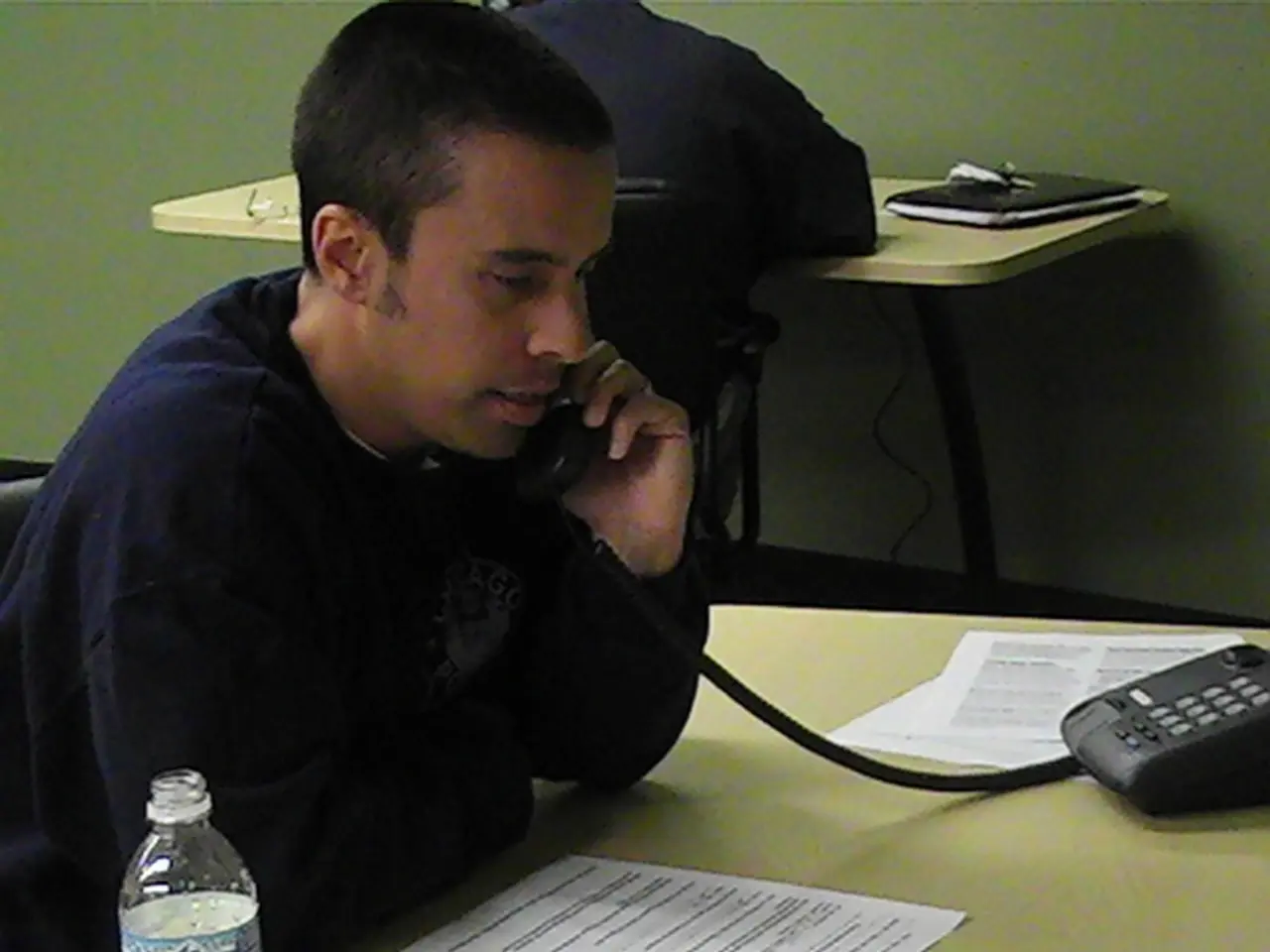Telehealth Services for Elderly French Speakers in Ontario
In Ontario's French-speaking region, a unique approach to healthcare is making a significant impact on the lives of senior citizens. A telemedicine program called "March towards the future" has been implemented since 2008 to prevent falls and combat isolation among seniors aged 55 and over.
Since 2019, Ontario has been focusing on its "Digital First" strategy, leading to various digital health initiatives and pilot projects. The "March towards the future" program is no exception, offering its services either at community centres or synchronously at home.
Through telemedicine, seniors can access remote health consultations that enable assessment and monitoring of their physical and mental health from the comfort of their own homes. With telehealth services conducted via video links, healthcare practitioners can assess mobility and balance, providing guidance on fall prevention exercises and safety measures without the need for travel.
This approach also offers social support, allowing family members or friends to participate in appointments. This is particularly important in addressing the isolation that often affects seniors, especially those living in remote communities.
The telemedicine platforms require a stable internet connection and a device (phone, tablet, or computer) to facilitate live interactive consultations. The Ontario Telemedicine Network has expanded its services since before the COVID-19 pandemic, including compensation and support for these remote services, increasing accessibility for seniors in remote French-speaking communities.
Telemonitoring combined with electronic health records enhances continuous risk assessment for falls and promotes ongoing communication between seniors and healthcare providers. This helps mitigate social isolation and ensures that seniors receive the care they need, when they need it.
Research conducted by Jennifer O'Neil, a physiotherapist and assistant professor at the University of Ottawa, reveals that seniors are generally capable of accessing telemedicine services and have a better digital literacy than one might think. After the initial session, seniors feel comfortable with telemedicine, suggesting that it is a viable solution for delivering healthcare services to this demographic.
However, it's important to note that telemedicine programs must be adapted to the realities of each community. As D'O'Neil points out, there's no one-size-fits-all solution, and programs must be designed with local contexts, economic barriers, and cultural differences in mind. More research should be conducted before developing digital tools and services for telemedicine programs to ensure they are effective and accessible for all seniors.
In conclusion, telemedicine is proving to be a valuable tool in facilitating fall prevention and mitigating isolation among French-speaking seniors in Ontario. By enabling safe, convenient access to healthcare professionals who remotely assess risks and provide interventions, while also connecting seniors socially via virtual appointments in their preferred French language, this model addresses geographical and language barriers and helps maintain seniors' independence and well-being in Ontario's French-speaking region.
- The growth of workplace-wellness programs in France has been significant, with a strong emphasis on health-and-wellness initiatives for employees.
- In the realm of French science, researchers are increasingly focusing on the intersections of fitness-and-exercise and mental-health.
- Studies on mens-health in France have shown a growing concern for skin-care and therapies-and-treatments related to aging.
- The digital age has seen a surge in the availability of health-related apps, from weight loss to mental health, becoming an integral part of France's lifestyle.
- Fashion-and-beauty Industry in France has been innovative in addressing the need for skincare products that cater to different ages and skin types, emphasizing the importance of proper skin care.
- As the emphasis on mental-health grows, more French institutions are offering counseling services and support groups for those struggling with various mental health issues.
- Womens-health in France has seen advancements in preventive care, including regular screenings for breast and cervical cancer.
- In an effort to promote holistic wellness, more French pharmacies are stocking CBD products for anxiety, pain relief, and skin care.
- Lifestyle changes that prioritize health and wellness have become popular trends in France, including a focus on plant-based diets and organic food-and-drink options.
- The home-and-garden industry in France has been steadily developing smart home technology to improve energy efficiency and overall well-being of residents within their households.
- The internet of things (IoT) is changing the course of technology in France, with a growing focus on devices that monitor and improve mental and physical health.
- Relationship counselling is increasingly sought after in France, with therapists now offering services online to reach more clients.
- Pet owners in France can now find a range of products designed to improve their pets' health and well-being, from natural food options to advanced fitness-and-exercise equipment.
- Popular travel destinations in France now offer wellness retreats that combine wellness programs with scenic backdrops, making wellness tourism a growing industry.
- In the world of sports, French athletes are embracing big-wins, pushing the envelope in baseball, hockey, golf, basketball, racing, tennis, and mixed-martial-arts.
- Weather conditions in France can greatly impact sports betting outcomes, making sports analysis a crucial factor in making informed betting decisions.
- The sports gambling trends in France show a growing interest in sports-betting and its potential to revolutionize the gambling culture within the region.
- Casinos in Las Vegas, the gambling capital of the world, have been adapting their offerings to the digital age with online casino games and lotteries.
- The emergence of casino personalities, such as poker players and high-stakes gamblers, has shaped the casino culture and garnered widespread media attention.
- As gambling becomes more accessible in the digital age, responsible gambling practices are increasingly important, with many organizations offering resources to help those struggling with addiction.




